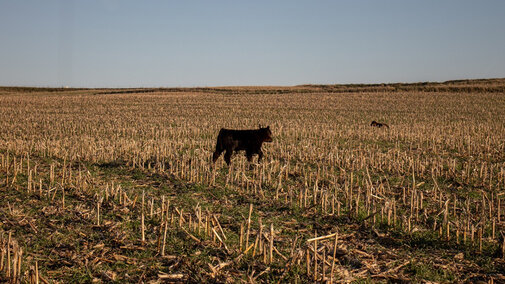Integrating cover crops into livestock operations presents substantial opportunities for economic and environmental benefits, according to a new USDA Economic Research Service report featuring contributions from faculty members and graduate students in the University of Nebraska-Lincoln’s Center for Agricultural Profitability.
The report, “Cover Crops on Livestock Operations: Potential for Expansion in the United States,” offers in-depth insights into the integration of cover crops with livestock operations. The research was led by Maria Bowman, a research agricultural economist with USDA ERS, with contributions from other researchers at USDA, Ohio State University and Iowa State University.
Center for Agricultural Profitability researchers contributing to the report include Jay Parsons, professor and farm and ranch management specialist; Mary Drewnoski, associate professor and livestock systems specialist; Daren Redfearn, professor and crop residue and forage specialist; and former graduate students Maroua Afi (UNL Department of Agricultural Economics), Fernanda Souza Krupek (UNL Department of Agronomy and Horticulture), and Aubree Beenken (Iowa State University Animal Science).
Key findings from the study indicate that while current adoption rates are relatively low — only 14% of cattle operations with cropland used cover crops as of 2017 — there are notable variations depending on the type of operation. Dairy and feedlot operations are more likely to utilize cover crops due to their high forage value, which exceeds the costs of production. The report highlights that grazing or harvesting cover crops is financially beneficial, especially in regions such as the U.S. Eastern Uplands and parts of Texas and Louisiana.
"Our findings demonstrate that cover crops can significantly enhance the profitability and sustainability of livestock systems," Parsons said. “By improving soil health and providing additional feed resources, cover crops and annual forages, in general, play a crucial role in the future of sustainable agriculture.”

